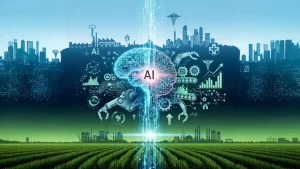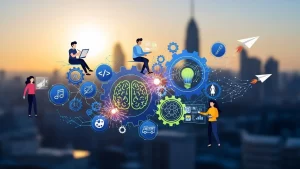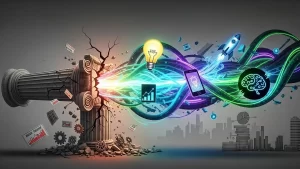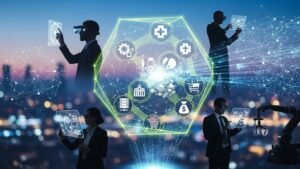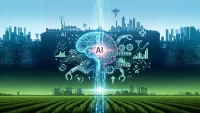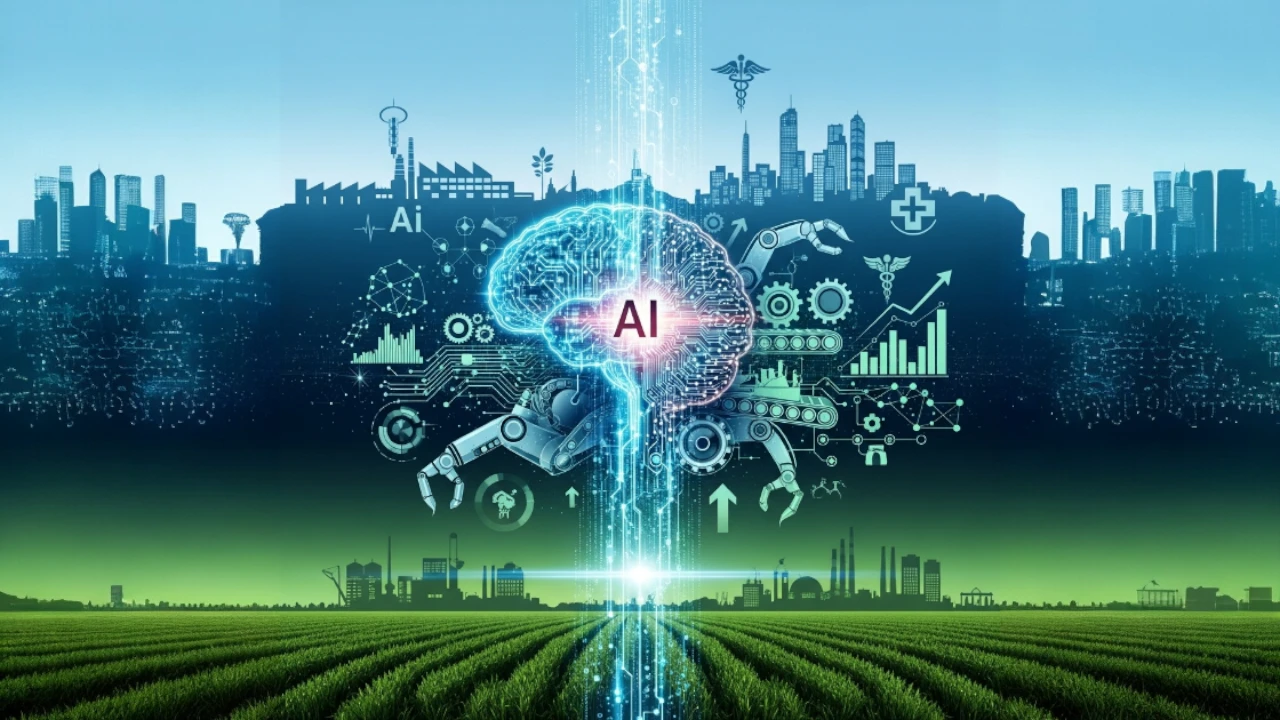In the rapidly evolving world of business, Artificial Intelligence (AI) is not just a buzzword; it is a transformative force that is reshaping the landscape of entrepreneurship. As we look towards the future, understanding the AI innovations that are driving change is crucial for entrepreneurs who want to stay ahead of the curve. This article delves into the key AI innovations that are set to revolutionize entrepreneurship and provides insights on how to leverage these advancements for success.
Table of Contents
ToggleUnderstanding AI in Entrepreneurship
What is AI in Entrepreneurship?
AI in entrepreneurship involves the use of advanced algorithms and machine learning techniques to analyze data, predict trends, and automate processes. This technology enables entrepreneurs to make more informed decisions, optimize operations, and create innovative products and services.
The Evolution of AI in Business
AI’s journey in business began with basic data analysis and has now evolved into sophisticated applications such as predictive analytics, natural language processing, and real-time customer interactions. This evolution has significantly enhanced the capabilities of entrepreneurs, allowing them to deliver more targeted and impactful solutions.
AI Innovations Transforming Entrepreneurship
1. AI-Powered Market Research
Automated Data Collection and Analysis
AI can automate the process of collecting and analyzing market data, providing entrepreneurs with valuable insights into customer behavior, market trends, and competitive landscape. This allows for more accurate and timely decision-making.
Predictive Market Trends
AI can predict future market trends based on historical data, helping entrepreneurs anticipate changes and adapt their strategies accordingly. This proactive approach ensures that businesses stay ahead of the competition.
2. Enhanced Customer Experience with AI
Personalized Customer Interactions
AI can analyze customer data to deliver personalized experiences. This includes personalized product recommendations, targeted marketing messages, and customized customer service interactions. Personalization enhances customer satisfaction and loyalty.
AI-Powered Customer Support
AI-powered chatbots and virtual assistants provide instant customer support, answering queries and resolving issues in real time. These tools use natural language processing to understand and respond to customer inquiries, improving the overall customer experience.
3. AI in Product Development
AI-Driven Innovation
AI can analyze vast amounts of data to identify patterns and trends that can inform product development. This allows entrepreneurs to create innovative products that meet the needs of their target market.
Rapid Prototyping and Testing
AI can accelerate the process of prototyping and testing new products. By simulating different scenarios and analyzing the results, AI helps entrepreneurs refine their products more quickly and efficiently.
4. AI in Marketing and Sales
Targeted Marketing Campaigns
AI can analyze customer data to create highly targeted marketing campaigns. This ensures that marketing messages reach the right audience at the right time, maximizing the return on investment.
Sales Forecasting
AI can predict future sales based on historical data and market trends. This helps entrepreneurs plan their sales strategies and allocate resources more effectively.
5. AI in Operations and Supply Chain Management
Optimizing Operations
AI can optimize business operations by automating routine tasks, improving efficiency, and reducing costs. This includes everything from inventory management to logistics and supply chain optimization.
Supply Chain Predictive Analytics
AI can analyze supply chain data to predict potential disruptions and optimize inventory levels. This ensures that businesses can maintain smooth operations and meet customer demand.
The Future of AI in Entrepreneurship
AI and Blockchain Integration
Enhanced Security and Transparency
The integration of AI and blockchain technology can enhance security and transparency in business operations. Blockchain provides a secure and transparent way to track and verify transactions, while AI can analyze this data to optimize business processes.
Smart Contracts
AI-powered smart contracts can automate and enforce contractual agreements, reducing the need for intermediaries and increasing efficiency. This innovation has the potential to revolutionize industries such as real estate, finance, and supply chain management.
AI and the Internet of Things (IoT)
Connected Devices
The combination of AI and IoT enables the creation of connected devices that can collect and analyze data in real time. This allows entrepreneurs to monitor and optimize their operations more effectively.
Predictive Maintenance
AI can analyze data from IoT devices to predict when maintenance is needed, reducing downtime and extending the lifespan of equipment. This proactive approach to maintenance can save businesses time and money.
AI and Augmented Reality (AR)
Enhanced Customer Experiences
AI and AR can create immersive customer experiences that go beyond traditional interactions. For example, AR can allow customers to visualize products in their environment before making a purchase, while AI provides personalized recommendations based on user preferences.
Training and Education
AI and AR can also be used for training and education purposes. For example, AR can create realistic simulations for training employees, while AI can provide personalized learning experiences based on individual needs.
Conclusion
AI is revolutionizing entrepreneurship by providing innovative solutions that enhance efficiency, personalization, and overall business success. From AI-powered market research and customer experience to product development and operations, AI offers numerous benefits that can help entrepreneurs stay ahead of the competition. As AI technology continues to advance, entrepreneurs must stay informed and leverage these innovations to drive their businesses forward.
FAQs
1. How can AI improve market research for entrepreneurs?
AI can automate data collection and analysis, providing valuable insights into customer behavior, market trends, and competitive landscape. This allows for more accurate and timely decision-making.
2. What are the benefits of AI-powered customer support?
AI-powered customer support, such as chatbots and virtual assistants, provides instant responses to customer inquiries, improving customer satisfaction and reducing response times.
3. How does AI enhance product development?
AI can analyze data to identify patterns and trends, informing product development. It also accelerates prototyping and testing, allowing for quicker and more efficient product refinement.
4. What role does AI play in marketing and sales?
AI can create targeted marketing campaigns and predict future sales, helping entrepreneurs reach the right audience and plan their sales strategies effectively.
5. How can AI optimize business operations?
AI can automate routine tasks, improve efficiency, and reduce costs in areas such as inventory management, logistics, and supply chain optimization.
6. What is the potential of AI and blockchain integration?
The integration of AI and blockchain can enhance security and transparency in business operations, with applications such as smart contracts automating and enforcing agreements.
7. How do AI and IoT work together?
AI and IoT enable connected devices to collect and analyze data in real time, allowing for more effective monitoring and optimization of operations.
8. What are the applications of AI and AR in business?
AI and AR can create immersive customer experiences, such as virtual try-ons, and provide realistic simulations for training and education purposes.
9. How can AI-driven predictive maintenance benefit businesses?
AI can predict when maintenance is needed based on data from IoT devices, reducing downtime and extending the lifespan of equipment.
10. What are the key trends in AI for entrepreneurship?
Key trends include AI-powered market research, personalized customer experiences, AI-driven product development, targeted marketing, and the integration of AI with blockchain and IoT.


